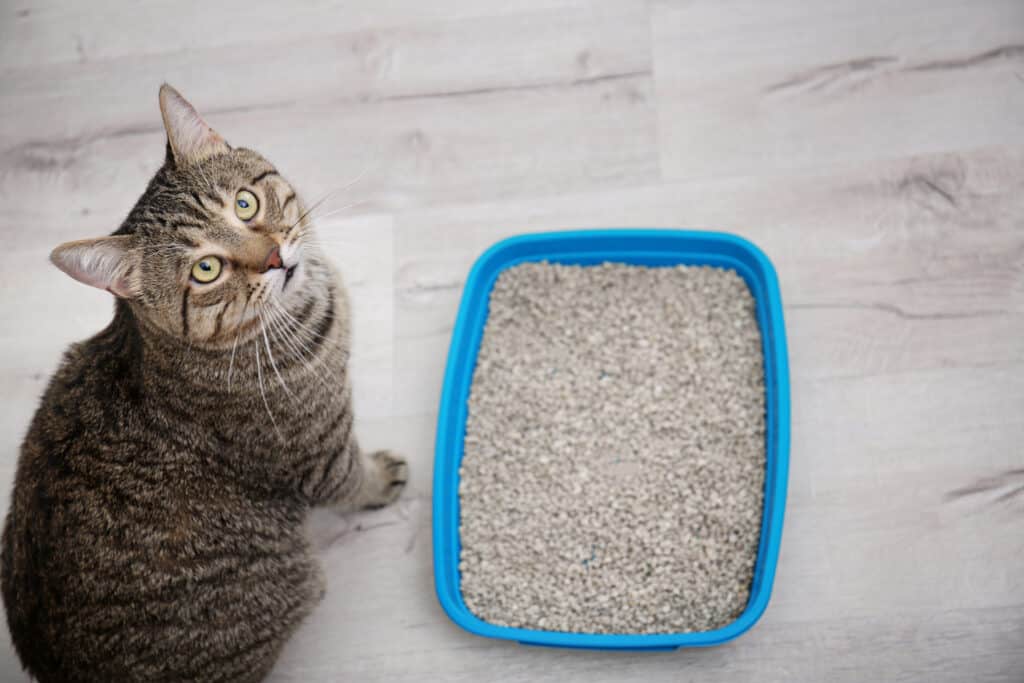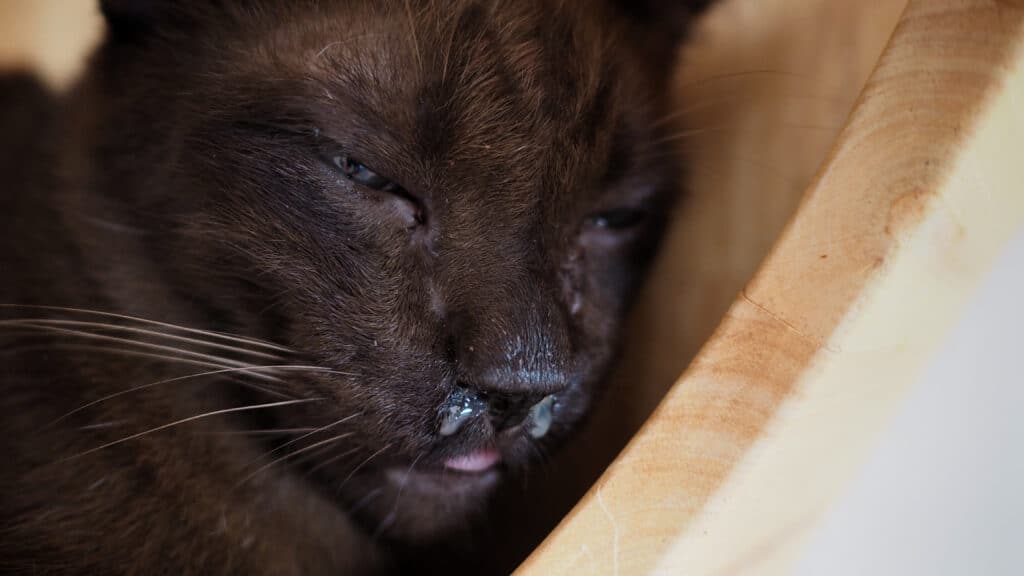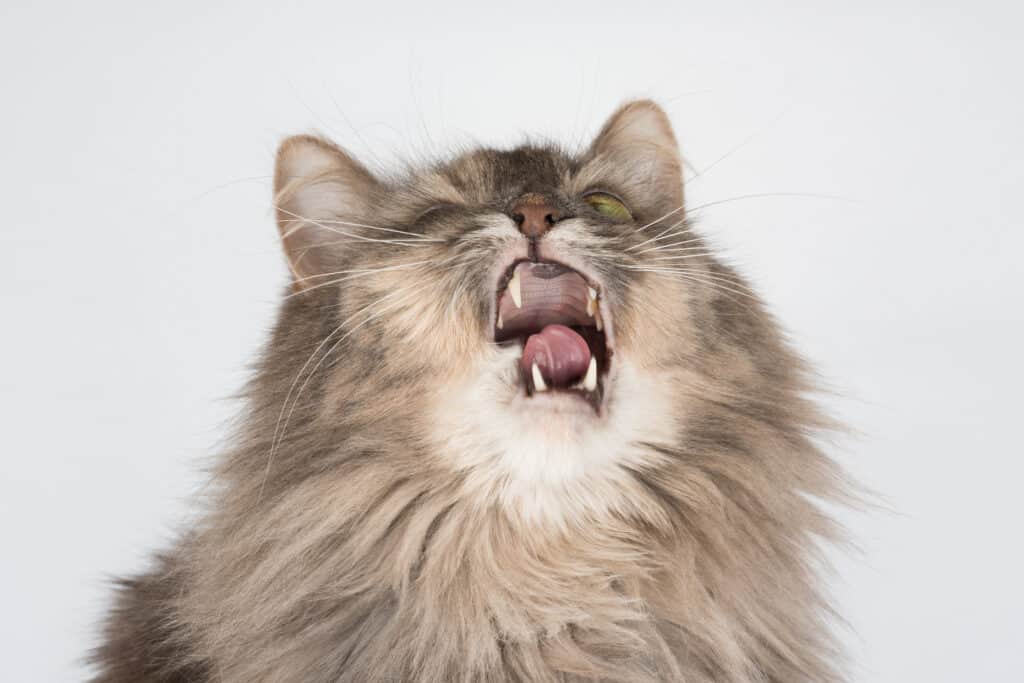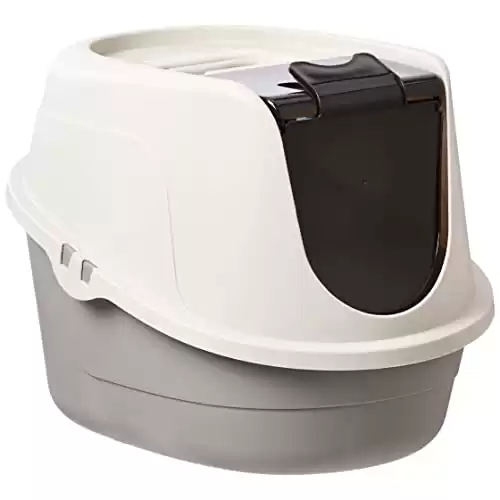Why do cats sneeze? Like humans, there are several likely causes for releasing air explosively from the nose and mouth. In most cases, your cat’s sneezing is natural, and there’s no reason to worry. Usually, it’s just the body trying to get rid of irritants in the nasal passage. Cats may also sneeze when they’re excited or due to other harmless reasons.
However, if your cat is sneezing repeatedly and the sneezing doesn’t go away after a while, you want to take a closer look at it. Sneezing could also be a problem if other symptoms accompany it. In this article, we will examine the various causes of sneezing in cats and when you should consider checking in with your veterinarian for diagnosis and treatment.
Causes of Sneezing in Cats
Cats can sneeze for a wide range of reasons. Usually, the tickle in their nose may be caused by environmental factors. However, it could also be a result of an infection or illness. Here are some of the common causes of sneezing in cats and how to deal with them.
Nasal Blockage
The simplest and most cause of sneezing in cats is nasal blockage. If a piece of litter, dirt, or catnip gets stuck in your cat’s nasal passage, it is likely to get a tickle in the nose. This is likely to lead to a sneezing bout. Typically, this helps get the particle out of the cat’s nose, and everything will be fine afterward. It’s the body’s natural way of getting rid of such blockages and preventing serious nasal infections.

Sometimes a cat may sneeze because a piece of debris, like some cat litter, gets stuck in its nasal passages.
©New Africa/Shutterstock.com
Infections
Frequent sneezing in cats can be an indication of a bacterial, fungal, or viral infection. Usually, the sneezing will be accompanied by other symptoms if it is caused by an infection. Some of the common infections that may cause sneezing include:
Upper Respiratory Infection
Often referred to as cat flu, upper respiratory infections are caused by viruses, bacteria, or fungi. The condition is similar to the common cold or flu in humans. It can last for anywhere between 7 to 10 days on average.
Young kittens and aged cats are more prone to respiratory infections. Also, if your cat is newly brought in from an animal shelter or has interacted with other cats recently, the sneezing may be a sign of a respiratory infection.
In addition to sneezing, cats with URIs may also show other symptoms. These include coughing, excessive swallowing, lethargy, discharge from the nose or eyes, and loss of appetite. Upper respiratory infections can spread from one cat to the other. So if you have an infected cat, you should see a veterinarian right away for diagnosis and treatment.
Feline Herpes Virus
This is another viral infection that can spread from one cat to the other through contact with discharge from an infected cat. The disease may also cause other symptoms such as nasal congestion, loss of appetite, drooling, and eye ulcers.
Feline Calicivirus
Feline calicivirus is a contagious virus that causes respiratory infections and oral issues in cats. It is particularly common in cats in shelters or breeding colonies and mostly affects young cats. Calicivirus can cause mouth ulcers, pneumonia, and a range of other respiratory issues.

Feline Calicivirus can cause cats to sneeze.
©RJ22/Shutterstock.com
Other infections
Asides from these major infections, sneezing might also be a symptom of a broad range of other infections. These include:
- Feline infectious peritonitis
- Chlamydia
- Feline Immunodeficiency Virus (FIV)
- Leukemia
Inhaled Irritants Or Allergens
A cat’s nasal passage may become irritated by inhaled allergens in their environment. This often leads to occasional sneezing bouts, especially when they’re near the irritant. If your cat sneezes quite often but isn’t showing any other sign of discomfort or disease symptoms, you should check the cat’s immediate surroundings for possible irritants. Some likely irritants that your cat may be reacting adversely to include smoke, perfume, cat litter, cleaning agents, candles, dust or pollen, mold, and so on.
Allergic reactions are less common in cats than in humans. However, cats may occasionally suffer from allergies. In this case, the sneezing is often accompanied by other symptoms such as itchy skin.
Dental Disease
Dental disease is not an obvious suspect when cats sneeze, but it could be the cause of your cat’s sneezing. The roots of a cat’s teeth are located quite close to its nasal passage. Therefore, if it develops an infection or inflammation, there’s a very good chance that the nasal passage will also become irritated.
Inflammations
Inflammatory issues such as sinusitis and rhinitis are common causes of sneezing in cats. Rhinitis occurs when the mucous membrane in the nasal passage becomes inflamed, while sinusitis refers to an inflammation of the sinuses. Usually, these conditions occur as complications due to an upper respiratory infection.
In addition to frequent sneezing, inflammation can also cause eye discharge, among other symptoms. Your cat will also start breathing through its mouth because it finds it difficult to breathe through its nose.
Reactions To Medication Or Vaccines
Vaccines or medications administered to treat various infections in cats may also trigger sneezing. Usually, this lasts for just a few days after the medication has been given and should stop on its own.
Why Do Cats Sneeze?-Identifying A Pattern
Occasional sneezing in cats is nothing to worry about. It might just be something stuck in the cat’s nasal passage. However, if sneezing is frequent, the first step to dealing with it is to try to identify a pattern. Try answering some of these questions to determine a pattern and a likely cause of your pet’s sneezing problem.
- Does the sneezing happen around a particular time of the day?
- Is sneezing accompanied by other symptoms?
- Does your pet sneeze in a specific room of the house?
- Does sneezing occur during certain activities?
Answering these questions will help you unravel the cause of the problem. For instance, if your cat sneezes more when it is close to its litter box, then it might be reacting to an irritant in the litter. Similarly, if your cat sneezes more when it enters the bathroom or kitchen, it could be a reaction to a cleaning product you’re using.
- Available in standard, large, and triangle size/shape
- Features a snap-on hood to contain litter and to give your cat privacy
- Stain- and odor-resistant plastic
- Wipe clean with a damp cloth
- Includes 1 carbon filter to control odor -- replacements can be purchased separately
However, suppose you notice that the sneezing is accompanied by a change in habits or other symptoms such as discharge from the nose or eyes, loss of appetite, lack of energy, and so on. In that case, there’s a good chance that the cat is suffering from an infection and will require medical care. You should see a vet for this or any other cat-related questions you might have.

If you’re concerned, try to identify if there’s a pattern to your cat’s sneezing.
©ZlataMarka/Shutterstock.com
Conclusion
Occasional sneezing is normal in cats. Most times, it is nothing to worry about, especially if the symptoms are mild and it isn’t accompanied by other issues. However, if your cat repeatedly sneezes during the day and continues to do that for a few days or shows other symptoms, you should visit a veterinarian immediately. They’ll carry out tests to determine the cause of the infection and recommend the appropriate treatment to prevent the sneezing and help your pet breathe normally again.
The photo featured at the top of this post is © Sagittarius_13/Shutterstock.com
Thank you for reading! Have some feedback for us? Contact the AZ Animals editorial team.







